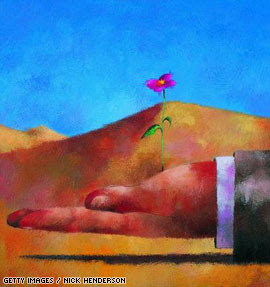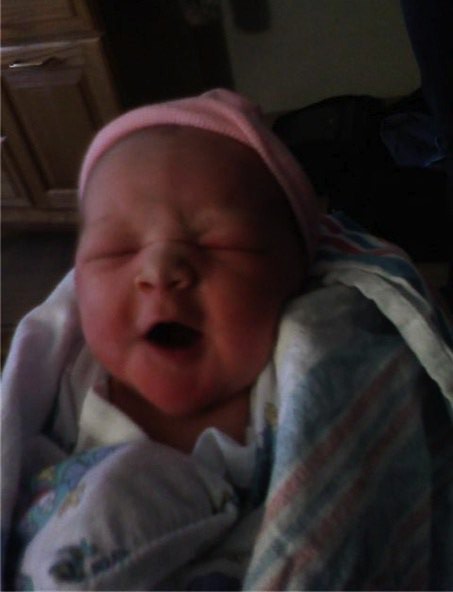
I could have written this myself. I was an only child, dominated by my mother. I spent a lifetime trying to get away from her, not just physically apart but freeing my mind of her condemntation and criticism. Many people are surprised when I say this. My mother was well liked by many. But few knew how she was "behind closed doors" with me. I personally allowed myself to bloom some years ago, even though she had not died, but the transformation to a halt when she purposefully moved to be near me. I summoned all the strength I had inside me to show her respect while still trying to be true to myself. I wasn't always successful. I began attending a church while she was my neighbor. I invited her; she told me it was a cult. It certainly was not, but that's the way she was. I rarely had the guts to go against her to her face. I tried to live my life and protect her from the things about me I knew she wouldn't like, my politics, my past addictions and later sobriety, my particular spiritual beliefs, and more. As the woman says below, it was a burden.
Another blooming period began when my mother slipped into Alzheimer's. But by this time, my health was wrecked, and I was losing my ability to work. Not much of a bloom developed, but at least I was free. She could no longer rip me with her tongue.
Fortunately or unfortunately, depending on whose perspective you see it from, I was recently unable to attend my mother's funeral. It was fortunate for me in that I didn't have to deal with it at all. Unfortunately that left my two older daughters to deal with it. And unfortunately, not being able to attend meant once again I could not visit my dear daughters and grandchildren.
I consider my life pretty much wasted. Too much energy went into resisting my mother. Not enough left for my life as a whole. But I am certainly not alone. Read on:
(LifeWire) -- The death of a mother or father can be emotionally wrenching -- particularly for children who had a difficult or complicated relationship with their parents. But for others, it can also be a time for personal growth and renewal.
Carolanne Seeger is one such person. A health-food-store manager from Philadelphia, Seeger says she finally felt free to be herself after her parents died. "I was my mother's best friend," she says, "and sometimes it was a burden."
Her parents' marriage wasn't great and they didn't have friends, so Seeger was their lifeline. "I was an only child and very co-dependent. I didn't have the courage to go against them, so I didn't spread my wings and fly when others did."
Seeger's experience isn't unusual, says New York City-based psychotherapist Jeanne Safer, author of the upcoming book "Death Benefits: How Losing a Parent Can Change an Adult's Life -- for the Better."
"We think it's unseemly to 'profit' from a parent's death, as though it means we're glad they're dead," Safer says. "But research shows that a majority of bereaved adults report significant improvements in their lives after they have grieved for their parents."
Emotional freedom
Writer Mark Louis Lehman of Cincinnati also blossomed after his dad passed away. Lehman's father, a salesman who grew up during the Depression and started working to support his family at age 16, had little respect for his son's artistic aspirations, and it was a bone of contention for them. After his father's death, though, things changed for Lehman.
Writer Mark Louis Lehman of Cincinnati also blossomed after his dad passed away. Lehman's father, a salesman who grew up during the Depression and started working to support his family at age 16, had little respect for his son's artistic aspirations, and it was a bone of contention for them. After his father's death, though, things changed for Lehman.
He felt a new sense of freedom to pursue his goals. Immediately he took a job as a writer and copy editor for a music magazine. Then he wrote and published his first novel, "Mocky's Revinge," a thinly veiled account of his relationship with his father that touches on issues of revenge and forgiveness.
Safer says the intensity of the parent-child bond gives parents extraordinary emotional power over the feelings, thoughts, assumptions and identity of their children, and that it may take the death of a parent to allow adult children to feel liberated and do things they never dared when their parents were alive.
"They can understand their relationships with their parents in a radical new way now that they are no longer literally interacting with them," says Safer.
"Some (children) get married, some get divorced, some change jobs or become religious or atheists. They feel emotionally liberated when they no longer are dominated by someone else's values or have to be emotional caretakers ... the list goes on and on," she adds.
It doesn't work out that way for everyone, of course. A year after the death of her father, Debra Epstein, who works in museum education in New York, still feels conflicted about her relationship with him.
"It's complicated," she says. "I am less angry toward him than I was at various times in my life, but really I just feel a hole, no liberation."
Where to begin
It doesn't have to be that way, Safer says. In her book, she explains how to begin the process of transformation after the death of a parent:
It doesn't have to be that way, Safer says. In her book, she explains how to begin the process of transformation after the death of a parent:
• Make a conscious decision to address and learn from your parent's death.
• Allot some private time each day to think about their personalities and your relationship. Look at family photos and possessions that affect you, actively recall the best and the worst moments you had together, and try to remember your dreams about them.
• Construct a narrative of your parent's history as objectively as possible.
• Create an inventory of your parent's character, determining what to keep and what to discard.
• Think seriously about both the positive and negative impact your parent has had on your life. For example, recognize that both your sense of humor and your quick temper come from your father, or that both your pessimism and your sensitivity to other people's feelings are your mother's legacy.
• Remind yourself that you don't have to follow your parents' ideas of how you should look, feel or act ever again; you're free to question everything they taught you and decide what's right for you without worrying about offending them.
• Identify your guilt and realize it's healthy to feel liberated when even a beloved parent dies.
• Seek new experiences and relationships to support the changes you desire.
For Seeger, the transformation began with seeking therapy, which her mother never would have approved of while she was living.
"After my parents died, I could finally pursue what I wanted to for my own sake," she says.
LifeWire provides original and syndicated lifestyle content to Web publishers. Heidi Sarna is a Singapore-based freelancer who writes about travel and lifestyle issues.
Find this article at: http://edition.cnn.com/2008/LIVING/personal/03/07/parents.death/index.html?imw=Y&iref=mpstoryemail
LifeWire provides original and syndicated lifestyle content to Web publishers. Heidi Sarna is a Singapore-based freelancer who writes about travel and lifestyle issues.
Find this article at: http://edition.cnn.com/2008/LIVING/personal/03/07/parents.death/index.html?imw=Y&iref=mpstoryemail

.gif)


No comments:
Post a Comment